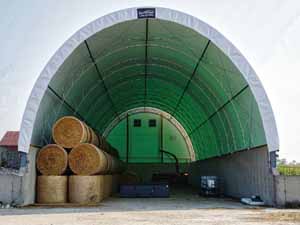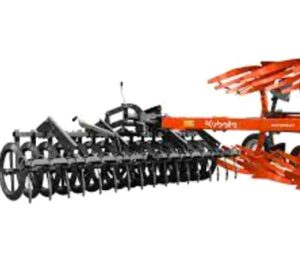In the extensive and mixed agriculture world, the spine of productivity lies in the hands of farm laborers. These hard workers tirelessly produce the products for our daily lives. Yet, to safeguard their well-being and rights, a complicated tangle of farm labor laws exists, handling everything from wages to working situations. Keeping with these rules is not just a legal responsibility — it’s a moral obligation.
Overview of Farm Labor Laws
Definition and Purpose
The goal of farm labor laws is to protect the interests and rights of farming laborers. They protect a broad range of laws pertaining to working circumstances, employment practices, pay norms, and safety. The major plan is to supply fair therapy and good safety for farming laborers, who often operate in hard and dangerous conditions.
Key Legislation
- Fair Labor Standards Act (FLSA)
Employees in the private sector, as well as those used by the national, state, and municipal administrations, are subject to the FLSA’s minimum wage, recordkeeping, overtime salary, and youth employment laws. Specific exclusions may apply to farming workers, but basic rights remain.
- Migrant and Seasonal Agricultural Worker Protection Act (MSPA)
For migratory and seasonal farming laborers, the MSPA presents additional protections. To stop abuse and exploitation, it manages career, accommodation, transportation, and working conditions.
- Occupational Safety and Health Act (OSHA)
OSHA sets safety procedures to stop infections and injuries at work. To handle the particular risks faced by the agriculture industry, there are regulations designed specifically for it.
- State-Specific Regulations
Many states have their legislation designed to safeguard farm workers in addition to federal rules. These can include worker accommodations, safety regulations, and extra wage safeguards.

Employment Regulations
Hiring Practices
Hiring farm employees involves guiding a labyrinth of legal conditions. Employers must attach clear procedures to confirm compliance.
Documentation and Verification: For each employee they employ, farming employers are required to fill out and keep I-9 paperwork. This paper is used to verify people’s uniqueness and work permits.
Contracts and Agreements
A written contract can serve as a critical tool in clearly defining employment terms.
Essential Terms of Employment: Wages, hours worked, responsibilities, and other pertinent information should all be clearly included in contracts. This lessens the likelihood of miscommunications and court cases.
Child Labor Laws
Agriculture often involves family farming, where children may assist in the operation. However, child labor laws are stringent to prevent exploitation and injury.
Age Restrictions: The FLSA sets age restrictions for young workers. Generally, children under 16 are limited to non-hazardous farm work during non-school hours.
Wage Regulations
Minimum Wage Requirements
Ensuring fair compensation is a critical aspect of farm labor laws.
Federal and State Minimum Wages: The federal minimum wage under the FLSA applies to most agricultural workers, but some exemptions exist. Additionally, states may set higher minimum wages or have different criteria for agrarian workers.
Overtime Pay
Understanding overtime regulations is essential for compliance.
Conditions for Overtime Pay: While the FLSA typically requires overtime pay for hours over 40 in a workweek, certain exemptions apply to agriculture. However, some states mandate overtime pay for farm workers.
Record Keeping
Proper documentation is necessary to demonstrate compliance with wage laws.
Timekeeping Best Practices: Employers should maintain accurate records of hours worked and wages paid. This includes daily and weekly time records and detailed pay stubs.
Working Conditions and Safety
Workplace Safety Standards
Agriculture poses unique safety challenges, which are addressed under specific OSHA regulations.
Common Hazards and Prevention: Farmers face risks from machinery, pesticides, heavy lifting, and more. Ensuring safety involves regular training, proper equipment maintenance, and adherence to safety protocols.
Housing and Transportation
The MSPA addresses the critical aspects of housing and transportation for migrant workers.
Standards and Employer Responsibilities: If housing is provided, it must meet federal and state safety and health standards. Transportation must also be safe and reliable, with regular vehicle inspections.
Health and Welfare
Providing for the health and welfare of workers is not just a legal requirement but also a vital component of worker retention and productivity.
Access to Healthcare and Compensation: Employers should ensure that workers have access to healthcare services and understand their rights to workers’ compensation for work-related injuries or illnesses.

Enforcement and Penalties
Regulatory Bodies
Multiple agencies oversee the enforcement of farm labor laws.
Agencies in Charge: The U.S. Department of Labor, through its Wage and Hour Division, enforces the FLSA and MSPA. OSHA handles safety regulations. State labor departments may have additional responsibilities.
Inspections and Audits
Understanding the inspection and audit process can help employers remain compliant.
What to Expect: Inspections can be routine or triggered by complaints. Auditors will review employment records, interview workers, and inspect working and living conditions.
Penalties for Non-Compliance
Non-compliance can lead to severe consequences.
Types of Penalties: Violations can result in fines, legal sanctions, and reputational damage. Employers might also face civil or criminal charges for severe infractions.
Best Practices for Compliance
Education and Training
Ongoing education and training are essential for both employers and workers.
Importance of Training: Regular training sessions on labor laws and safety standards ensure everyone understands their rights and responsibilities.
Resources: Employers can access information and resources from labor organizations and government websites. For those seeking comprehensive legal documents and templates, Lawrina.org offers an extensive collection of resources tailored to various legal needs. Employers can find guidelines, contract templates, compliance checklists, and other essential tools to ensure they are meeting all their legal obligations. These resources are invaluable in aiding employers in smoothly and effectively navigating the intricacies of labor laws.
Record Keeping and Documentation
Consistent and accurate record-keeping is crucial.
Tips for maintaining records: Keep detailed records of hiring, wages, hours worked, and any incidents that occur on the farm. Utilize payroll software to streamline the process.
Regular Compliance Reviews
Regular reviews and audits help identify and correct potential issues before they escalate.
Conducting Self-Audits: Self-audits involve periodically reviewing policies, procedures, and compliance with labor laws.
Seeking Legal Advice: Consult with legal experts to navigate complex regulations and stay updated on changes in the law.
Farm labor laws ensure fair treatment and safety for the millions of workers who sustain our agricultural industry. Farm employers can create a more equitable, safe, and productive working environment by understanding and strictly adhering to these laws.






